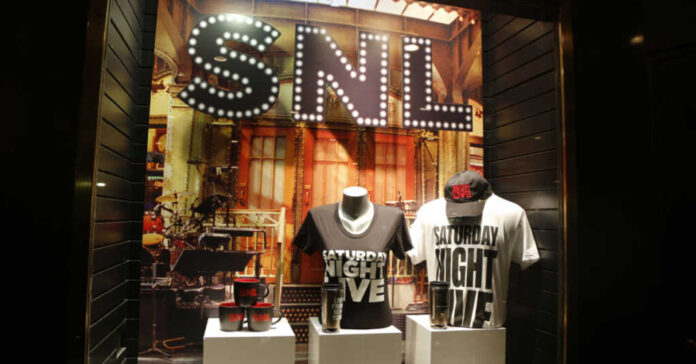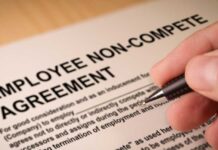
There was a time when Saturday Night Live was a fun show with lots of laughs, great musical guests, and a clever, biting commentary on the absurdities of life. That was before the Donald Trump era, however, and like almost every other comedian or late-night talk show, the focus of the SNL writers has been on former President Donald Trump at the cost of the variety and the comedic gold for which the show has always been known.
But, like most liberal and progressive media, sometimes the writers go a little overboard in their enthusiasm to trash Trump. And, like most liberal and progressive media, sometimes they sacrifice themselves on the altar of progressivism and display their ignorance in embarrassing ways.
Live, from New York, it’s Saturday Night Live’s latest faux pas.
During the “Weekend Update” portion, SNL cast member Colin Jost expressed a condescending bewilderment regarding the term “de-bank,” a word Trump used during a speech. “Trump did have a slight stumble this week while talking about banks, and he introduced an interesting new term called de-bank,” Jost crowed. “I don’t know what the hell de-bank means, but you might have to take ‘de-ambulance’ to see ‘de-doctor.’”
The only hitch in the joke is that de-banking is an actual term. De-banking is denying banking services or closing accounts for individuals or entities, often due to regulatory compliance concerns, perceived risk, or other factors. It can affect individuals, businesses, or entire industries, particularly those operating in sectors that financial institutions deem high-risk or politically sensitive.
For example, some industries, such as cannabis businesses in regions where marijuana is legalized, have encountered difficulties in accessing banking services due to conflicting federal and state laws. Additionally, individuals or groups involved in controversial or politically sensitive activities may be de-banked or face difficulties maintaining banking relationships.
While instances of individuals or entities being de-banked might not always make mainstream headlines, there have been cases where notable figures or organizations have faced challenges with banking services.
Hunter Biden’s various business entities were flagged to be de-banked by a money-laundering expert when various banking activities were suspected to involve dirty money from China in 2018. In an email the House Oversight Committee recovered, the bank official noted that due to numerous shady high-dollar deposits in Hunter’s various “business” accounts, a “re-evaluation of the relationship with the customer” was necessary. At the time, the bank noted that Hunter was a Politically Exposed Person.
A Tennessee-based Christian organization known as Indigenous Advanced Ministries raised allegations against Bank of America in 2021, accusing the institution of “de-banking” their accounts because of their religious beliefs. During April of that year, the nonprofit received a warning indicating that Bank of America had opted not to service their particular business type. In May, the bank sent another letter asserting that the nonprofit’s risk profile “no longer aligns with the bank’s risk tolerance.”
Even the United Kingdom practices de-banking, and sometimes their target is a powerful one in the political landscape. Former Brexit leader Nigel Farage had his Coutts Bank accounts closed due to his political affiliations. While the bank contended that the decision stemmed from Farage “falling below a financial threshold,” there were reports that Coutts sent a memo confirming that the misalignment of Farage’s views with the bank’s views was a factor in the decision.
The backlash on social media was scathing. Michael Caputo, a former Trump official, joked, “@ColinJost what’s it like to unintentionally make a complete joke of yourself and your entire team of unaware writers? A simple Google search would have saved you all the embarrassment.”
One X post user looked up “de-banking” and posted its definition in his tweet. “This is what happens when you live in your own echo chamber,” the user noted.
In November of last year, an SNL cold open spoofed Representative Elise Stefanik (R-NY) for her part in grilling university presidents about the rampant antisemitism in their schools. Instead of focusing on the frequently clueless testimony of these presidents, SNL took aim at the conservative representative who consistently made them look foolish throughout their testimony.
During the writer’s strike, SNL was temporarily taken off the air, and a Newsweek poll revealed that half of its viewers didn’t “miss the show at all.” After all, viewers can get the same canned anti-Trump sentiment from CNN or MSNBC, and they don’t have to stay up late to watch it.







